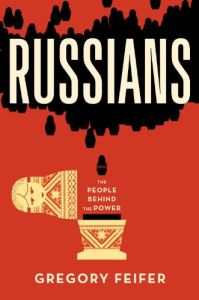Join getAbstract to access the summary!

Join getAbstract to access the summary!
Gregory Feifer
Russians
The People Behind the Power
Twelve, 2014
What's inside?
Russia is currently making transitions back and forth from its old Soviet culture.
Recommendation
While Moscow looks like any busy, hardworking major city, it functions quite differently, according to former National Public Radio Moscow correspondent Gregory Feifer, who blends history and recent headlines with first-person accounts of his experiences with average Russians. He found that average citizens often lack personal drive in resource-rich Russia, where taking, even stealing, seems to be more important than producing. Bribes and illegal payments inflate consumer prices and contribute to Russia’s $300 million-per-year “corruption market.” Feifer says the nation’s “informal economy of connections, agreements and favors” has expanded since Vladimir Putin became president in 2000. In Feifer’s analysis, Putin’s coercive administration is “inherently instable,” and oil-price volatility makes it worse. The Russian government approaches foreign relations as a “zero-sum” exercise in which a gain for one country means a loss for another. Russia’s military incursion against Ukraine in 2014 produced a degree of political and economic isolation that the country has not seen since the Soviet era. While always politically neutral, getAbstract recommends Feifer’s detailed, highly readable description of Russia’s socioeconomic twists and turns to students of history, investors, NGOs, entrepreneurs, and anyone curious about or doing business in today’s Russia.
Summary
About the Author
Gregory Feifer, former Moscow correspondent for National Public Radio, reported from Russia for nearly a decade. He wrote The Great Gamble, a history of the Soviet war in Afghanistan.
















Comment on this summary
How he got reelected in 1996? Only Putin might know, who protected Yeltsin and his clan from prosecution, which was probably a precondition for Yeltsin's handover of power to Putin.